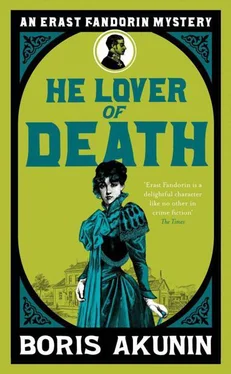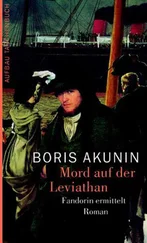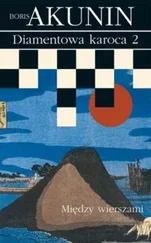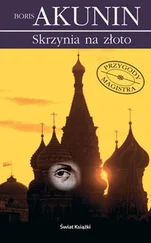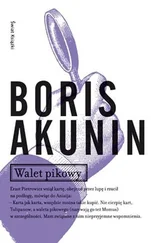Tough but fair, that was what everybody said about Boxman, and Boxman really was his surname. He wouldn’t deliberately do you wrong. Everyone called him ‘Ivan Fedotovich’ to his face, as a mark of respect. Only Senka couldn’t tell if it was just a nickname that he’d got from his surname, or if it was because in olden times, so they said, all the constables in Moscow were called ‘boxmen’, because of the kiosks they used to stand in. Or maybe it was because he lived in the official police box on the edge of the Khitrovka market. Any time when he wasn’t pounding his beat, he sat at home in front of an open window, keeping a watch on the square, reading books and newspapers and drinking tea from his famous silver samovar with medallions that were worth a thousand roubles. And there weren’t any locks on the box. What would Boxman want locks for? In the first place, what good were they, when the place was surrounded by top-class lock-pickers and window-men? They could open any lock, easy as falling off a log. And in the second place, no one would go trying to filch anything from Boxman – not unless he was tired of living, that is.
From his window the constable could hear everything and see everything, and what he couldn’t see or hear was whispered to him by his loyal informers. That was above board, it wasn’t forbidden by the Council, because Boxman was part of Khitrovka. If he’d lived by the written laws and not the laws of Khitrovka, they’d have knifed him ages back. No, when he took someone into the station, it was all done with the proper understanding: he had to do it, to show his bosse she was doing something . Only Boxman didn’t put anyone away very often – not unless he absolutely had to – mostly he taught people their lesson with his own hands, and they kowtowed to him and said thank you very much. In all the years he’d been there, only one pair of shysters had ever gone for him with a knife – escaped convicts, they were, not from Khitrovka. He beat the two of them to death with his massive great fists, and the police superintendent gave him a medal. Everyone respected him for it, and the Council gave him a gold watch for the inconvenience.
So once Senka had settled in a bit, it was clear enough that Khitrovka wasn’t such a terrible place. It was more cheerful there, and freer, and it goes without saying that he ate better. In winter, when it got cold, it would probably be tough, but then winter was still a long way off.
HOW SENKA GOT TO KNOW DEATH
It happened about ten days after Senka saw Death that first time.
He was hanging about on the Yauza Boulevard, in front of her house, spitting at the bollard they tied the horses to and staring at the half-open windows.
He already knew where she lived, the lads had shown him and, to tell the truth, this wasn’t the first day he’d spent cooling his heels here. Twice he’d been lucky and caught glimpses of her from the distance. One time, four days before, Death had come out of the house wearing a black shawl on her head and a black dress, got into the fancy gig that was waiting for her and driven off to church for mass. And just yesterday he’d seen her arm in arm with the Prince: dressed up like a lady, wearing a hat with a feather in it. Her beau was taking her somewhere – to a restaurant, maybe, or the theatre.
He took a gander at the Prince at the same time. Well, what was there to say, a superb figure of a man. After all, he was the most important hold-up artist in all of Moscow, and that’s no small potatoes. The governor-general, Simeon Alexandrovich, had it easy, he was born the tsar’s uncle, no wonder he was a governor and a general, but just you try climbing up to the top of the heap and making yourself mister big, number one, out of all the crooks in Moscow. It was a real rags-to-riches story. And his sidekicks were all really grand lads, everyone said so. They said some of them were really young too, not much older than Senka. Would you believe some people’s luck, ending up in the Prince’s gang straight off like that, when you were still green and sappy! They had respect, any girls they wanted, more money than they could ever count, and they dressed up like real fancy dandies.
When Senka saw him, the famous bandit was wearing a red silk shirt, a lemon satin waistcoat, and a crimson velvet frock coat. He had a boater perched on the back of his head, gold rings with precious stones on his fingers and calf boots that shone like mirrors. A real sight for sore eyes! A dashing light-brown forelock, blue eyes with a bold stare to them, a gold crown glinting in his red teeth, and a chin like chiselled stone, with a dimple right in the middle of it. They’re not just a couple – a real picture, that’s what they are, Senka thought, and sighed.
Not that he had any stupid dreams in his head that should give him reason to sigh, God forbid. He wasn’t trying to get Death to notice him either. He just wanted to get another look at her, so he could properly make out what was so unusual about her and why his insides clenched up tight, like a fist, the moment he laid eyes on her. So he’d been wearing down his soles here on the boulevard for days now. As soon as he finished thieving with the lads, he went straight to the Yauza.
He’d examined the house thoroughly from the outside. And he knew what it was like on the inside too. The plumber Parkhom, who fixed Death’s washbasin, told him the Prince had set up his lady love in real classy style, even laid in water pipes. If Parkhom wasn’t lying, then Death had a special room with a big china tub that was called a bath, and the hot water flowed into it straight out of a pipe, from this boiler up on the wall – gas-heated, it was. Death got washed in that tub almost every day that God sent. Senka imagined her sitting there all pink and steamy, scrubbing her shoulders with the sponge, and the fantasy made him feel all hot and steamy too.
The house was pretty impressive from the outside too. There used to be some general’s manor house here, but it burned down, and just this wing was left. It was pretty small, with only four windows along the boulevard. But this was a special spot, right smack on the boundary line between the Khitrovka slums and the well-heeled Serebryaniki district. On the other side of the Yauza, the houses were taller and cleaner, with fancier plastering, but here on the Khitrovka side, they weren’t so smart. Like the horses they sold at the horse market: look at it from the rump, and it seems like a horse all right, but from any other angle it’s definitely an ass.
And so the front of Death’s house that overlooked the boulevard was neat and dignified, like, but the back led out into a really rotten passage, and a gateway only spitting distance from Rumyantsev’s flophouse. You could see what a handy home the Prince had found for his girl – if anything happened, if he was ambushed at her place, he could dash out the back way, or even jump out of a window and make a beeline for the flophouse, and there was no way anyone could ever find him in all the underground collidors and passages there.
But from the boulevard, where the well-bred people strolled about between the trees, you couldn’t see the back passage, let alone Rumyantsev’s place. Khitrovkans couldn’t go out past the fancy railings – the coppers would sweep them up with their broom in a flash and stick them in their rubbish cart. Even here, on the Khitrovka waterside, Senka tried not to make himself too obvious, he stuck close to the wall of the house. He was behaving himself proper too, not like some kind of riff-raff, but even so, Boxman spotted him with his eagle eye as he was walking past and stopped.
‘What are you doing skulking over there?’ he asked. ‘You better watch yourself, Speedy, I’m warning you.’
Читать дальше
